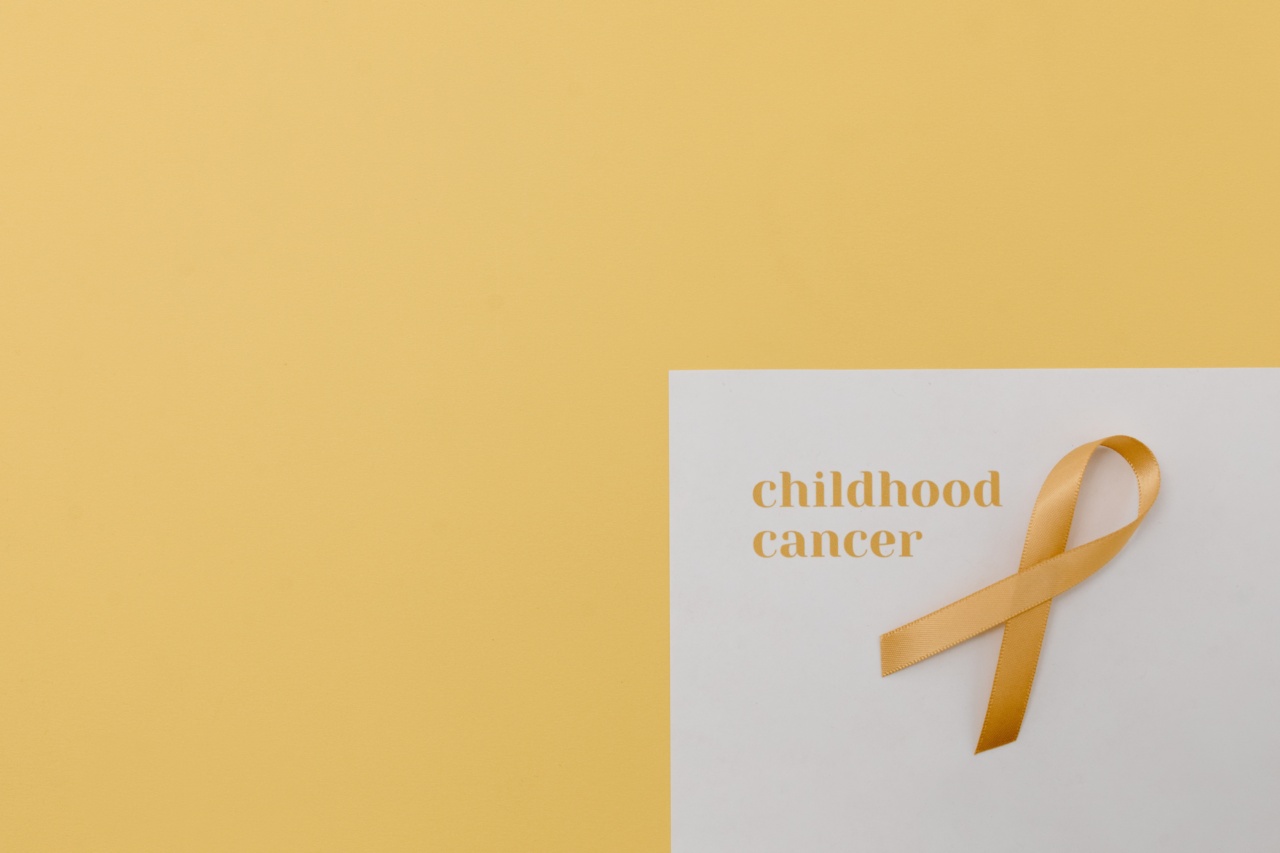Childhood cancer is a rare disease that affects children under the age of 18. Although it is not as common as cancer in adults, childhood cancer can still have a devastating impact on a child and their family.
It is important to know the common symptoms of childhood cancer in order to detect it early and improve the chances of a successful treatment.
1. Unexplained Weight Loss
If your child is losing weight without any obvious reason, it may be a symptom of childhood cancer. The weight loss can be due to loss of appetite, nausea, or an underlying medical condition.
2. Abdominal Pain
Abdominal pain is a common symptom of childhood cancer that affects the digestive system. The pain can be sharp or dull and may be accompanied by other symptoms such as vomiting or diarrhea.
3. Fever
A fever can be a sign of infection, but it can also be a symptom of childhood cancer. If your child has a persistent fever that does not respond to treatment, it is important to see a doctor.
4. Fatigue or Weakness
If your child is experiencing constant fatigue or weakness, it may be a sign of childhood cancer. The fatigue may be due to anemia, which is a common symptom of cancer.
5. Persistent Headaches
If your child is experiencing persistent headaches that do not respond to treatment, it may be a symptom of brain cancer. Other symptoms may include vomiting, changes in vision or speech, or seizures.
6. Lumps or Swelling
Lumps or swelling in the neck, groin, or other parts of the body can be a symptom of childhood cancer. It is important to get any lumps or swelling checked out by a doctor.
7. Easy Bruising or Bleeding
If your child is experiencing easy bruising or bleeding, it may be a symptom of childhood cancer. This can be due to a low platelet count, which is a common symptom of cancer.
8. Bone Pain
Bone pain is a common symptom of childhood cancer that affects the bones and joints. The pain may be dull or sharp and may occur with other symptoms such as swelling or stiffness.
9. Changes in Vision
If your child is experiencing changes in vision such as double vision or blurred vision, it may be a symptom of childhood cancer. This can be due to a tumor pressing on the optic nerve.
10. Pale Skin
If your child is experiencing pale skin or appears unusually tired or weak, it may be a symptom of childhood cancer. This can be due to anemia, which is a common symptom of cancer.
Conclusion
If your child is experiencing any of these symptoms, it is important to see a doctor as soon as possible. Early detection and treatment of childhood cancer can improve the chances of a successful treatment and a better outcome for your child.




























